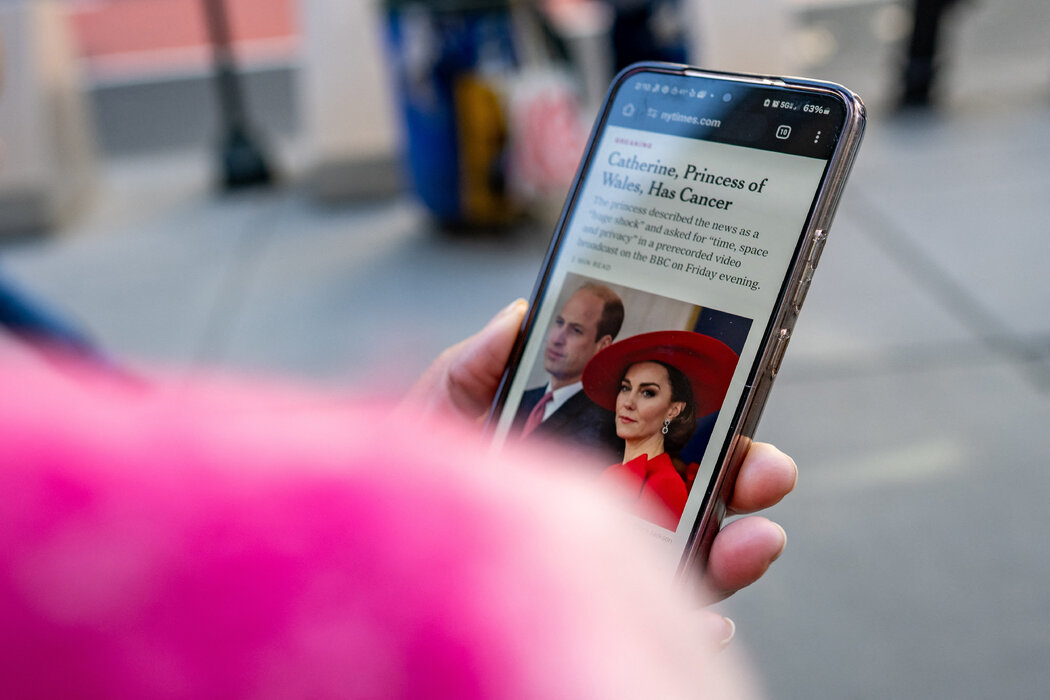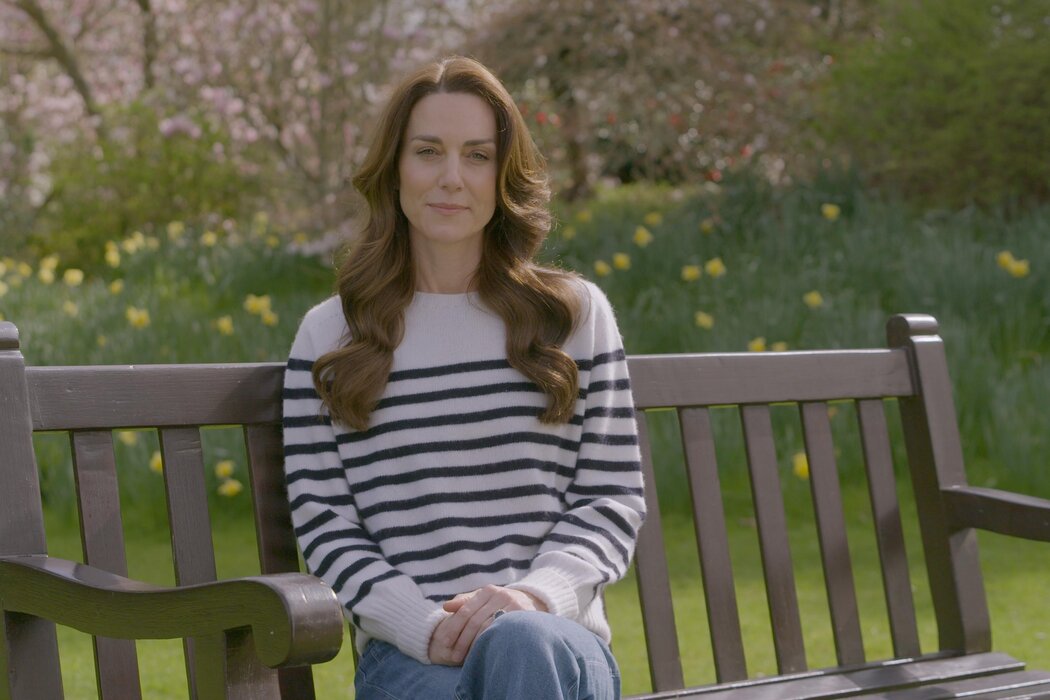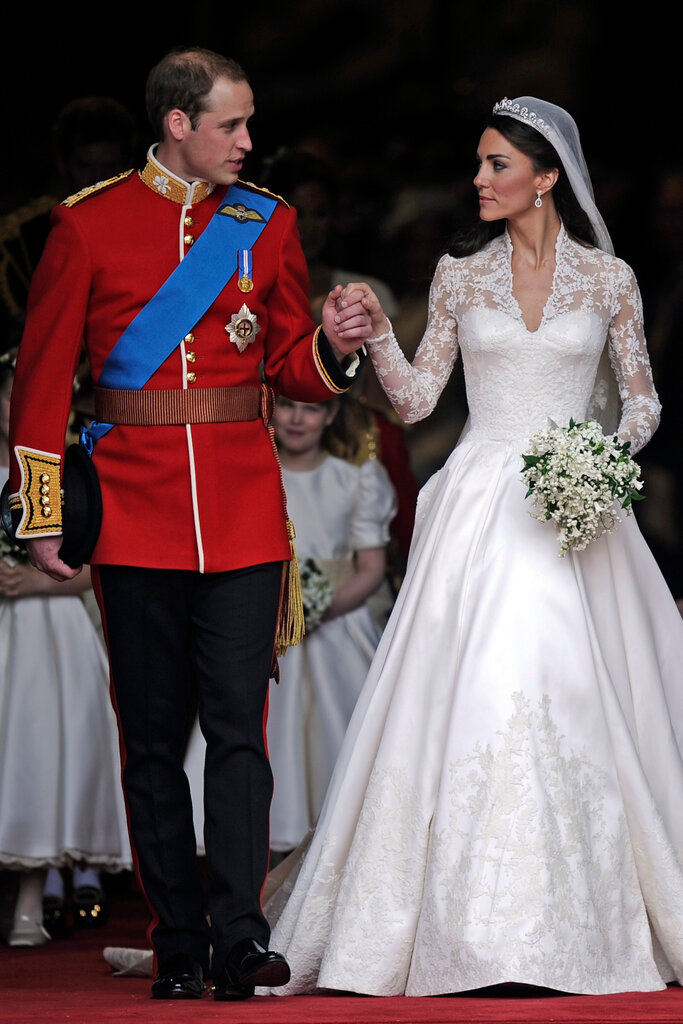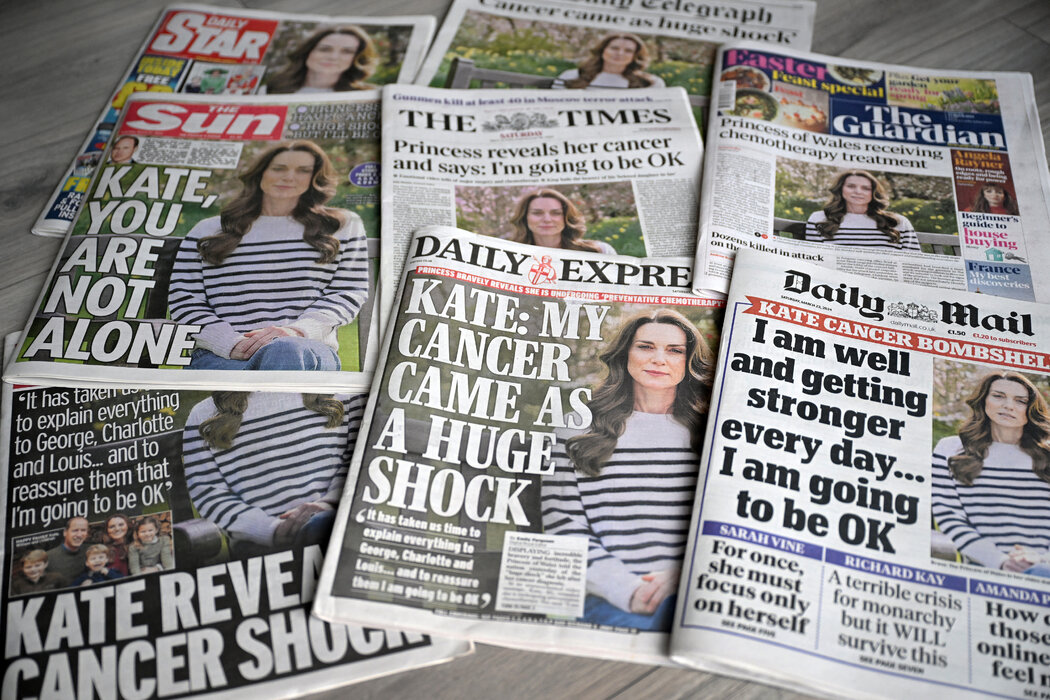

推荐阅读:

To be clear, there is nothing private about having cancer. A diagnosis requires referrals and a bewildering number of scans and tests. There are ultrasounds, MRIs, PET scans; colonoscopies, bronchoscopies, endoscopies. There are needle biopsies, razor biopsies, or liquid biopsies. Most of the tests require getting naked, or mostly naked, beneath a robe, sometimes waiting in a large room full of other terrified strangers also in robes, before presenting oneself to strangers who push, jab, thread and insert tools into or onto body parts that are not normally explored. Frequently, these tests have to be repeated, or different tests ordered, to rule something out.
说白了,患癌并不是什么隐私的事。确诊癌症需要转诊,还需要做大量的扫描和检查。有超声波检查、核磁共振成像、正电子扫描;结肠镜检查、支气管镜检查、内窥镜检查。有针刺活检、刮取活检或液体活检。大多数检查都需要病人赤身裸体或裸露大部分身体,只穿一件长袍,有时还需要在一个大房间里等待,那里挤满了同样穿着长袍、惶惶不安的陌生人,然后再接受陌生人对你的推动、戳刺、穿线,并将工具插入通常不会触碰到的身体部位。这些检查往往需要重复多次,或者要求进行不同的检查,以排除某些可能性。
“I’ve been naked in front of so many people in my life at this point. You sort of lose some of that sense of, ‘My body is private,’” said Isabel Blumberg, who is my gynecologist. When I was diagnosed with breast cancer in 2019, Blumberg was the first person to call me. She told me that she’d had cancer, too.
“到现在,我已经在很多人面前裸体过了。这会让人失去一些‘我的身体是隐私的’这种感觉,”我的妇科医生伊莎贝尔·布伦贝格说。当我在2019年被诊断出患有乳腺癌时,布伦贝格是第一个给我打电话的人。她告诉我,她也得过癌症。
In the video Kensington Palace released on Friday, Catherine, Princess of Wales, revealed her cancer status after more than six weeks of silence and pleaded for privacy. “We hope that you will understand that, as a family, we now need some time, space and privacy while I complete my treatment,” she said while wringing her thin hands. A princess no doubt bypasses the waiting rooms and receives a level of medical care inaccessible to most. But she cannot evade the intrusions and indignities of cancer — the anxious waiting for pathology reports, the shock of the news, the series of treatment decisions that no young, healthy person has ever imagined having to make. The treatment can feel like a grueling, interminable invasion.
在肯辛顿宫上周五发布的视频中,威尔士王妃凯瑟琳在沉默了六个多星期后透露了自己患上癌症的消息,并恳求隐私。“我们希望你们能够理解,作为一个家庭,在我完成治疗期间,我们现在需要一些时间、空间和隐私,”她搓着瘦弱的双手说。作为王妃,毫无疑问她可以不用候诊,可以得到大多数人无法企及的医疗服务。但她无法回避癌症的侵扰和侮辱——焦急地等待病理报告、得知消息后的震惊、一系列任何一个健康的年轻人都从未想象过的治疗决定。治疗过程就像一场苦不堪言的、无休止的入侵。

And because Catherine is a princess, the violations went further: the wild and incessant speculation about what had gone wrong with her body, the alleged unauthorized infiltrations of her medical files, which the London Clinic, where she underwent “major abdominal surgery,” is investigating. “There is no place at our hospital for those who intentionally breach the trust of any of our patients or colleagues,” Al Russell, the clinic’s CEO, said in a statement.
因为凯瑟琳是一位王妃,对她的侵犯还不止于此。人们疯狂地无休止猜测她的身体出了什么问题,有人被指未经授权地试图获取她的医疗档案,她接受“腹部大手术”的伦敦诊所正在对此进行调查。该诊所的首席执行官艾尔·拉塞尔在一份声明中说:“对于那些蓄意破坏病人或同事对我们的信任的人,我们医院绝不容忍。”
Even in health, privacy is difficult for a public figure to attain, and since she married Prince William in 2011, Kate Middleton has lived under a microscope. Her physical body — her legs, her hair, her behind, her clothing — has been scrutinized in the way of every female celebrity but also because of her royal function and role.
即使在身体健康的时候,公众人物也很难获得隐私。自2011年嫁给威廉王子以来,凯特·米德尔顿一直生活在公众的显微镜下。她的身体——她的腿、头发、臀部、衣着——受到了所有女性名人都会经受的审视,但这也是因为她的王室职能和角色。
Long ago, she traded her independence for rank, and her most important job has been to perpetuate the monarchy by bearing its heirs. In a very real way, her body is under inspection because it belongs to her nation, and to its future.
很久以前,她用自己的独立换来了地位,而她最重要的职责就是为王室生儿育女,使君主制得以延续。可以非常真实地说,她的身体接受着检查,因为它属于她的国家,属于国家的未来。
In becoming royal, a person secures a lifetime of luxury and comfort. But also, “you become a public body, the site of enormous projection, everything from longing to disdain. People pick you apart,” Susie Orbach, a psychoanalyst in London and New York who treated Princess Diana, said in an interview. “There are so many different aspects of what it means to be a royal body — which obviously no one understands when they start going out with a prince.”
成为王室成员后,一个人将终生享受奢华和舒适。但同时,“你也成为了一个公众人物,一个巨大的投射点,投射从渴望到蔑视的种种情感。人们会把你挑得体无完肤,”在伦敦和纽约执业的心理分析师苏西·奥尔巴赫在采访中说,她曾为戴安娜王妃提供过治疗。“成为王室的身体意味着许多不同的方面——显然,开始和王子约会时,没有人会理解这一点。”

Guarding against incursions into privacy — controlling who has an interest in and access to the female royal body (for certainly no one is as obsessed with King Charles III’s health as they are with Catherine’s) — is at least four centuries old. Elizabeth I “spent an enormous amount of time authorizing images of her body,” strategically projecting an image of potent virginity to avoid marriage in order to amass and preserve power, explained Jean Howard, a Renaissance scholar at Columbia University. “She had to produce a body that people would accept,” Howard said.
防止隐私受到侵犯——控制对王室女性的身体利益相关并能接触到她们身体的人(因为显然没有人像关心凯瑟琳那样关心国王查理三世的健康状况)——至少有四个世纪的历史了。伊丽莎白一世“花了大量的时间批准她的画像”,战略性地塑造了一个贞洁的形象,以逃避婚姻,从而积累和维护权力。”哥伦比亚大学的文艺复兴历史学者让·霍华德解释说。“她必须塑造一个人们能够接受的身体。”
Working with court painters, the image makers of the time, Elizabeth I created “a virginity that everyone fetishized,” both sexual and unattainable. “She adorned herself with pearls of purity. She was painted in dresses that had a pearl right where the clitoris would be,” Howard said. When she passed childbearing age and could no longer wear virginity as armor, Elizabeth I instructed her portrait makers to render her as godlike — in Howard’s words, “the bride of Christ, married to her job, and married to the country.”
伊丽莎白一世与当时的形象塑造者——宫廷画家——合作,创造出了“人人迷恋的贞洁形象”,既有性吸引力,又高不可攀。“她用纯洁的珍珠装饰自己。在她的肖像画里,她的裙子上有一颗珍珠就绣在阴蒂的位置,”霍华德说。当她过了生育年龄,不能再把贞洁作为盔甲武装自己时,伊丽莎白一世指示她的画师把她画得像神一样——用霍华德的话说,“基督的新娘,嫁给了她的职责,嫁给了这个国家。”
But the monarchy has undergone the same cultural shift as everyone else — from bright lines between public and private selves to blurred ones, “from believing in privacy to believing you share everything,” Orbach said. When Queen Elizabeth II was pregnant in 1948 and 1950, with Prince Charles and Princess Anne, respectively, “the Queen was merely said to be in ‘an interesting condition’ and all photographs of that ‘condition’ were prohibited,” wrote Tina Brown in “The Diana Chronicles.” And in 1966, when the queen’s mother, Elizabeth, was admitted to the hospital, the communications team at Clarence House referenced “abdominal surgery,” and nothing further. More than 40 years passed before the Queen Mother’s biographer, William Shawcross, revealed that a cancerous tumor had been removed from her colon.
但君主制已经和其他人一样经历了文化转变。公共自我和私人自我之间的界限从明确变得模糊,“从相信隐私变成相信分享你的一切”,心理分析师奥尔巴赫说。在1948年和1950年,当女王伊丽莎白二世分别怀上查尔斯王子和安妮公主时,“人们只是说女王处于一种‘让人好奇的状态’,所有关于这种‘状态’的照片都被禁止”,蒂娜·布朗在《戴安娜编年史》中写道。1966年,当女王的母亲伊丽莎白王太后住院时,克拉伦斯宫的通讯团队只提到了“腹部手术”,再无下文。40多年后,王太后的传记作者威廉·肖克罗斯才透露,她切除了结肠里的一个恶性肿瘤。
“I hope they’re looking after you well,” Prince Charles, who was 18 at the time, wrote to his grandmother. “Mummy said that you had difficulty getting around two gi-normous policemen wedged into the corridor outside your room.” By the time Charles was expecting his first child, the tabloids were full of stories about Diana’s morning sickness.
“我希望他们好好照顾你,”当时18岁的查尔斯王子在给祖母的信中写道。“妈妈说你很难绕过两个大块头警察,他们就在你房间外面的走廊里。”而当查尔斯的第一个孩子即将出生的时候,小报上到处都是关于戴安娜孕吐的报道。

Cancer is not just an intrusive, malignant replication of cells that “lives desperately, inventively, fiercely, territorially, casually, and defensively” in the body, as Siddhartha Mukherjee wrote in “The Emperor of All Maladies,” but it always carries with it a whiff of death. At its best, cancer is something to be vigilant about and to contain. At its worst, it destroys. In any person, a diagnosis of cancer comes with a recognition of mortality. In many people, especially young healthy people, it feels like betrayal.
癌症不仅是一种侵入性的细胞恶性复制,如悉达多•穆克吉在《众病之王》中所写的那样,它在人体内“拼命地、创造性地、激烈地、领地性地、随意地和防御性地生活着”,而且它总是带着死亡的气息。在最好的情况下,癌症是需要警惕和遏制的东西。在最坏的情况下,癌症会摧毁一切。对任何人来说,得到癌症的诊断意味着必须认识到生命的有限性。对许多人,尤其是对健康的年轻人来说,这种感觉就像遭到了背叛。
“I had the easiest breast cancer I could have had,” Dr. Blumberg told me, “and it brought me up short.” She was diagnosed at 46 and is now 52. “It creates a sense of embarrassment that your body let you down at this age. I do remember feeling kind of stunned. Like, weak. Like embarrassed that my body had shown a vulnerability that I didn’t think I was going to have.” I felt the same way. We both also understood exactly how lucky we were to have small cancers, health insurance and doctors we could reach on the phone.
“我得的是最轻的乳腺癌,”布伦贝格医生告诉我。“但它却让我的生活突然被打断”。她46岁时被确诊,现年52岁。她说:“身体在那个年龄让你失望,这让人很尴尬。我确实记得当时有种惊呆了的感觉。像是一种虚弱。好像我的身体表现出了一种我没想过会有的脆弱性,这让我很尴尬。”我也曾有同样的感觉。我们也都明白,我们的癌症很小、有医疗保险,可以通过电话联系到的医生,这一切是多么幸运。
Still, for Catherine, whose royal image is one of lithe and capable athleticism, who has been photographed running, boating, mountain biking, and playing rugby, the news must be unbalancing. To process the reality of cancer — and the possibility of desiccation, weakness, and ugliness — when the public stakes in her vibrant health and beauty are so high, in the midst of the malign social media torrent, must feel outrageous.
尽管如此,对于凯瑟琳来说,她的王室形象是轻盈干练的运动爱好者,经常被拍到跑步、划船、骑山地自行车和打英式橄榄球,这个消息一定会让她惊慌失措。公众对她的健康和美丽如此关注,在社交媒体的恶意抨击声中,要面对癌症的现实——以及变得干瘪、虚弱和丑陋的可能性——她一定会感到非常愤怒。
With every cancer diagnosis comes the question of whom to tell, and when. And because cancer still carries with it such a deep sense of failure and shame, this telling is freighted with fear of judgment. When Susan Sontag wrote “Illness as Metaphor” in 1978, doctors in Italy and France did not tell any but “the most mature and intelligent” patients of their cancer diagnoses, fearing “the truth will be intolerable.” And “patients who know what they have tend themselves to be extremely prudish, if not outright secretive, about their disease,” she wrote. When, 40 years later, it was suggested, in a previous job, that I tell the HR manager about my breast cancer, I recoiled. I tell my friends everything, yet felt I did not know this man well enough to admit to a sickness in my left breast.
每一次癌症诊断都会带来一个问题:告诉谁,什么时候说。因为癌症仍然给人们带来深深的失败感和羞耻感,因此告知他人的过程中充满了对评判的恐惧。苏珊·桑塔格在1978年写下《作为隐喻的疾病》时,意大利和法国的医生除了“最成熟、最聪明的”病人外,不会告诉病人他们的癌症诊断结果,因为他们担心“真相让人无法承受”。她写道,“知道自己得了什么病的病人往往对自己的疾病非常谨慎,甚至完全保密。”40年后,有人建议我把自己患乳腺癌的情况告诉我当时所在单位的人力资源经理,我退缩了。我把一切都告诉了我的朋友们,但我觉得自己还不够了解这个人,所以不敢告诉他我左胸的病情。
The desire to disclose the details of one’s cancer varies widely, depending on the nature and severity of the diagnosis, the patient’s support systems and responsibilities, and, of course, gender. “Cancer management, like all of life, does not occur within a vacuum. It occurs within a system of relationships,” wrote the authors of a 2003 paper on cancer management. A 2009 analysis affirmed the convention that young men tend to be stoical, but it noted that women can also feel responsible for how others receive the news. “Women described trying to ‘protect’ or ‘distance’ their families from their diagnosis, and several talked explicitly about their efforts to remain upbeat,” the researchers wrote.
人们披露癌症详情的意愿差别很大,这取决于癌症的性质和严重程度、病人的支持系统和责任,当然还有性别。“癌症管理,就像生活里的一切一样,不是在真空中进行的。它发生在一个人际关系的系统中,”2003年一篇关于癌症管理的论文这样写道。2009年的一份分析报告肯定了年轻男性倾向于用冷静坚毅面对疾病的传统观念,但也指出,女性也会觉得自己对他人如何接受这一消息负有责任。研究人员写道:“女性试图‘保护’家人或‘剥离’家人与疾病的关系,有几位女性明确谈到了她们为保持乐观所做的努力。
Six weeks is not a long time in cancer world. Information reveals itself slowly, in stages, as do treatment options, and decisions are made accordingly. Now that Catherine has revealed her condition — broadly, without specifics — the world has another opportunity for projection. “Do we recoil?” Orbach asked. “Do we hurt? Do we identify? Do we fear?” Everyone will have some response, “including people who are anti-royalists, triumphalists.” But it’s not all negative, she pointed out. “People are fearful, but they also really care about you.”
在癌症的世界里,六周并不算长。信息会慢慢地、分阶段地显露出来,治疗方案也是如此,决定会据此做出。现在,凯瑟琳透露了她的病情——虽然只是笼统的——世界又有了一次投射的机会。“我们会退缩吗?”奥尔巴赫问道。“我们会感到痛苦吗?我们会认同她吗?我们会恐惧吗?”每个人都会有一些反应,“包括反皇主义者、胜利主义者”。但她指出,这并不全是负面的,“人们会害怕,但他们也会真正地表达关心。”
The royals, Orbach said, have lost their privacy along with everyone else — and to a higher degree because of the public’s magnified focus on them. But at the same time, their position affords them protection, and retreat. For Catherine, “I think there are enough private spaces, and one doesn’t need to worry about that.”
奥尔巴赫说,王室成员和其他人一样失去了隐私,而且由于公众对他们的关注被放大了,他们失去隐私的程度更高。但与此同时,他们的地位也给他们提供了保护和退路。对于凯瑟琳来说,“我认为私人空间已经足够多了,人们不需要为此担心。”
翻译:Ziyu Qing